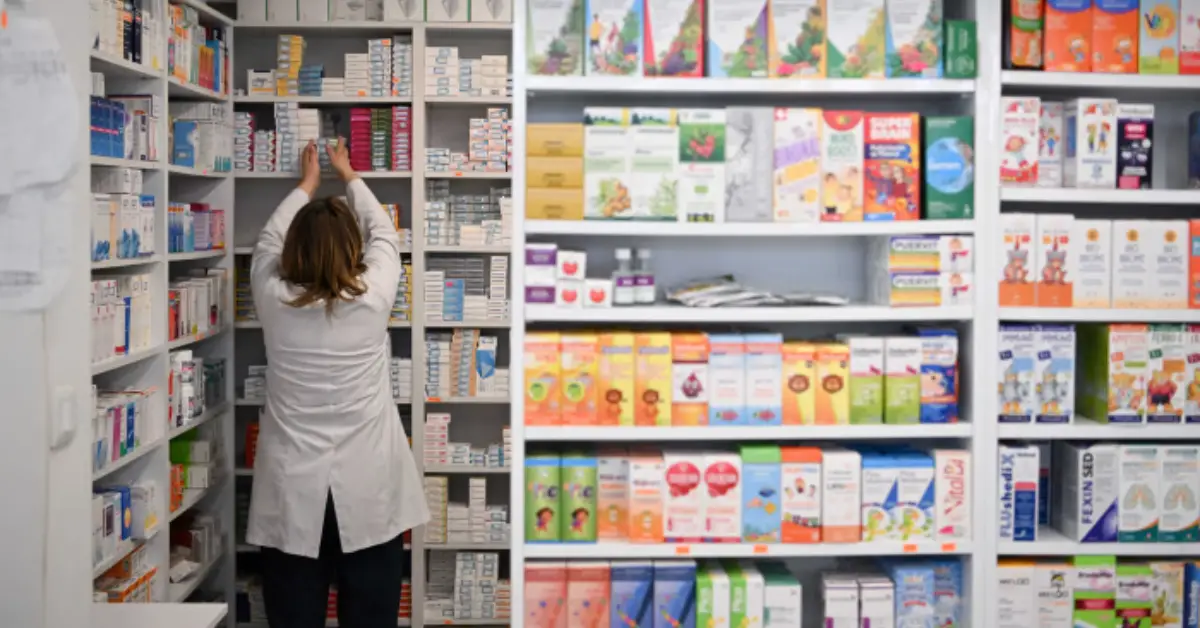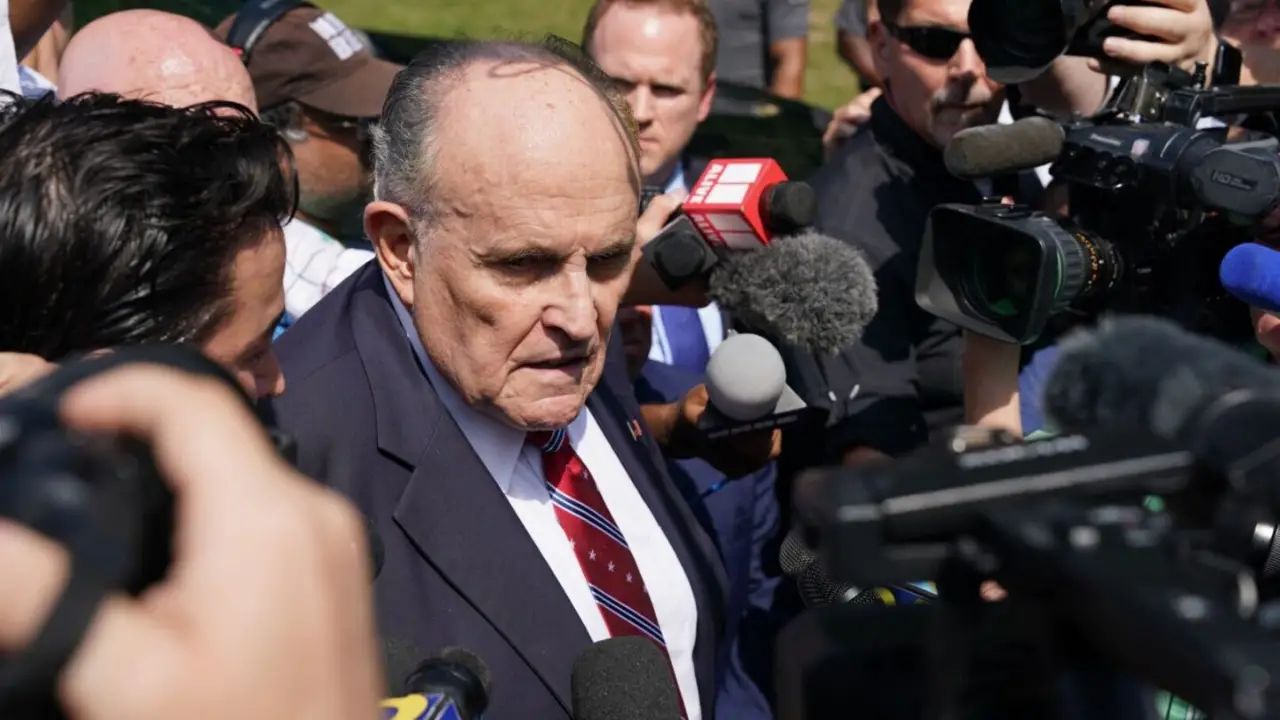Shares of global pharmaceutical stocks dropped sharply on Monday after President Donald Trump announced plans to cut the price of prescription drugs in the United States by as much as 80%. This bold promise to lower drug costs for Americans sent shockwaves through the stock market, as investors feared the potential impact on major pharmaceutical companies’ revenues.
Novo Nordisk, a company that generates about 60% of its sales in the U.S., was one of the biggest losers in early European trading, with its shares falling by 5%. Other European pharmaceutical companies, with significant exposure to the U.S. market, also faced sharp declines. AstraZeneca saw a 3.4% drop, Novartis lost 3%, and GSK’s shares fell by 2.5%.
The reaction in Europe was a mirror image of what occurred in Asia. Japanese pharmaceutical stocks that generate a significant portion of their revenue in the U.S. were hit the hardest. Daiichi Sankyo, a prominent player in the pharmaceutical industry, saw its shares fall by over 8%.
Otsuka Holdings also suffered a 5.4% loss, and Roche Holding’s Japanese subsidiary, Chugai Pharmaceutical, experienced a steep drop of 11.1%. In South Korea, Samsung Biologics shed 4.7%, while Daewoong Pharmaceutical’s shares dropped by 4.1%. Even in China, pharmaceutical stocks were broadly weaker as the global reaction to Trump’s announcement continued to reverberate across the market.
The trigger for this widespread sell-off in pharmaceutical stocks was President Trump’s post on Truth Social, in which he outlined his plan to cut prescription drug prices in the U.S. by as much as 80%. According to the President, he intends to sign an executive order on Monday aimed at lowering drug costs for American consumers. This announcement was met with both optimism from consumers who have long struggled with high drug prices and concern from the pharmaceutical industry, which is now facing the potential for significant revenue loss.
Trump’s executive order is expected to implement a policy known as the “Most Favored Nation” (MFN) approach. Under this policy, the U.S. government would agree to pay the same prices for medications as other countries with lower drug prices. In essence, the MFN policy would tie U.S. drug prices to those paid by nations with single-payer healthcare systems that negotiate lower costs for their citizens. Countries such as Canada, the U.K., and many in the European Union already pay significantly less for prescription drugs than the U.S., thanks to their ability to negotiate prices through their national healthcare systems.
While Trump’s proposal promises to bring much-needed relief to American consumers, it also raises concerns about the impact on pharmaceutical companies, many of which rely on the U.S. as their largest and most lucrative market.
For years, the high cost of prescription drugs in the U.S. has been a point of contention, with many Americans struggling to afford medications that are often far cheaper in other countries. Trump’s plan aims to level the playing field and ensure that Americans pay prices comparable to those in other developed nations.
However, the pharmaceutical industry is bracing for the consequences of the new policy. Major drugmakers, particularly those with a significant share of the U.S. market, are expected to bear the brunt of these price cuts.
For example, Novo Nordisk, a Danish multinational pharmaceutical company, generates a substantial portion of its sales from the U.S. market, making it particularly vulnerable to changes in drug pricing policies. The company’s stock fell by 5% in early European trading on the day of Trump’s announcement, as investors reacted to the potential for reduced profit margins in the U.S. market.

Other major pharmaceutical companies, including AstraZeneca, Novartis, and GSK, also faced sharp declines in their stock prices. These companies are also heavily reliant on the U.S. market for a significant portion of their sales, making them susceptible to any changes in drug pricing policies. AstraZeneca, for instance, saw a 3.4% drop in its stock price, while Novartis and GSK lost 3% and 2.5%, respectively.
The losses in European stocks were mirrored by declines in Asian pharmaceutical companies, where shares of Japanese drugmakers such as Daiichi Sankyo and Otsuka Holdings fell by 8% and 5.4%, respectively. Chugai Pharmaceutical, a subsidiary of Roche Holding, was hit particularly hard, with its shares plunging by 11.1%.
In South Korea, Samsung Biologics’ stock price dropped 4.7%, while Daewoong Pharmaceutical saw a 4.1% loss. Even in China, pharmaceutical stocks were broadly weaker, as the global reaction to Trump’s announcement continued to spread across markets.
This widespread sell-off in pharmaceutical stocks reflects the market’s concerns about the potential impact of Trump’s executive order on the global pharmaceutical industry. Investors fear that the price cuts could lead to lower profit margins for drug companies, particularly those with significant exposure to the U.S. market.
While Trump’s announcement has sparked fears within the pharmaceutical industry, it has also generated hope for American consumers who high drug prices have long burdened. The U.S. has some of the highest drug prices in the world, with Americans often paying several times more for medications than people in other countries.
The introduction of the MFN policy could help bring down these costs, potentially saving American consumers billions of dollars annually. Trump’s plan is also likely to have a positive impact on public perception, as it demonstrates that the government is taking action to address the issue of high drug prices.
However, the pharmaceutical industry is not without its defenders, who argue that cutting drug prices too drastically could have unintended consequences. Some experts warn that lower prices could lead to reduced investment in research and development, which could slow the development of new treatments and cures for various diseases.
Pharmaceutical companies argue that the high prices of medications are necessary to fund the expensive and lengthy process of drug development, and that any significant price cuts could reduce their ability to innovate.
Furthermore, Trump’s executive order has raised questions about the long-term impact on government healthcare programs such as Medicare and Medicaid. While Trump’s plan targets the price of prescription drugs for Americans, he did not clarify whether the price cuts would apply to government programs like Medicare and Medicaid. These programs already provide prescription drug coverage to millions of Americans, and any changes to pricing could have far-reaching consequences for these programs and the people who rely on them.
In conclusion, President Trump’s announcement to cut drug prices by as much as 80% has sent shockwaves through the global pharmaceutical market. While the plan promises to bring relief to American consumers, it also raises significant concerns about the potential impact on pharmaceutical companies’ revenues.
Stocks in major pharmaceutical companies have fallen sharply as investors react to the news, particularly those with heavy exposure to the U.S. market. As the details of Trump’s executive order unfold, it remains to be seen how this bold move will affect the global pharmaceutical industry in the long run.
Disclaimer: This article has been meticulously fact-checked by our team to ensure accuracy and uphold transparency. We strive to deliver trustworthy and dependable content to our readers.




